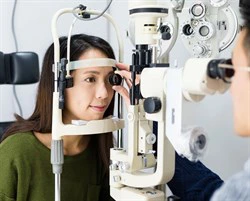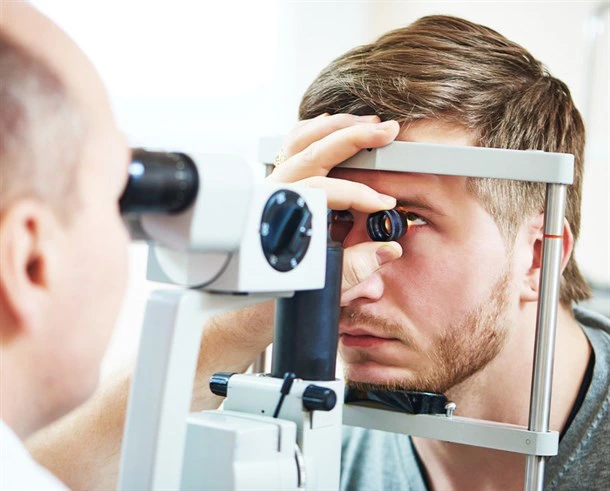


2 credits (3 ECTS Credits)
This course provides a comprehensive overview of retina and uveal diseases, their prevalence, and clinical signs and symptoms in optometric examination. Specific emphasis is given to diabetes and the eye. The course also provides graduates with the tools to interpret findings of retinal examinations including OCT, fundus photography, slit lamp examination with a VOLK lens, and binocular indirect ophthalmoscopy.
Course Structure
• Concentrated study format with several full days of lectures
At the completion of the course, students will be able to:
Prof. Simon Barnard is a British optometrist (City University, 1976) with a PhD in the topic of eye movements (1999). He is a Fellow of the College of Optometrists, the American Academy of Optometry and the European Academy of Optometry. Prof. Barnard is the Director of Ocular Medicine at the Institute of Optometry in London, a past member of the Board of Optometric Examiners and Chairman of the Scope of Practice Committee of the European Council of Optometry and Optics. An independent prescriber, Professor Barnard has published over 30 clinical papers in journals or books and is the Co-Editor and Author of the textbook Paediatric Eye Care. He is also a co-inventor of the Volk Eye Check and a world renown lecturer in optometry.
Dr. Jonathan Levine is an ophthalmologist with a subspecialty in medical retina. He received his undergraduate degree from Princeton University and MD from the Albert Einstein College of Medicine (AECOM). Following his fellowship in medical retina at New York University, Dr. Levine returned to AECOM as a faculty member and later as residency program director at AECOM’s Bronxcare Hospital from 2011 until 2016. Dr. Levine won the faculty teaching award twice in his 10 years in the department.
After moving to Israel, Dr. Levine continued working remotely for Bronxcare Hospital in New York screening patients for diabetic retinopathy. In addition to teaching at HAC he runs his own clinical practice and is an image grader for large clinical treatment trials for diabetic retinopathy and age related macular degeneration. He is a member of the American Academy of Ophthalmology and the American Society of Retina Specialists.
For information about registration, guest lecturers, and dates PRESS HERE
For more information:
Please contact: international@hac.ac.il
Program Director: Dr. Liat Gantz
Program Administrator: Ms. Alisa Gania
Department Chairperson: Dr. Hadas Ben-Eli
